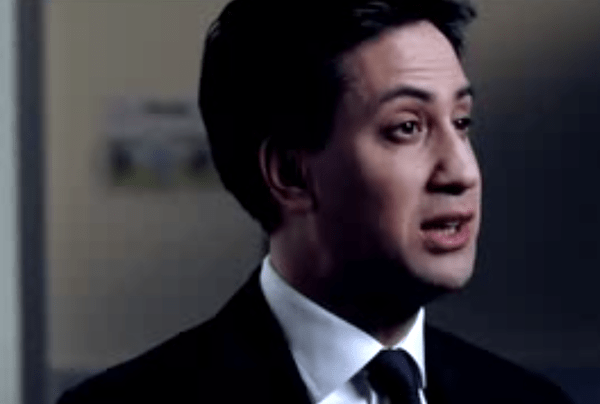Today is, according to the party’s own institutional memory, the first time Labour has talked about immigration in a party political broadcast. As I blogged yesterday, the party struggles to raise its voice when this policy area is debated in parliament because of the mistakes ministers made on migration when in government. Ed Miliband knows this, and so tonight television audiences across England will be treated to this party political broadcast:
The first thing that’s clear, aside from the emotional backing music that would be more at home on an animal rescue programme, is that this isn’t about announcing big new policies. Miliband announced all of these ideas on English lessons, tougher restrictions and a focus on skills for those competing with migrants back in December. Back then he said that the Labour government had got things wrong on immigration, and today he says ‘one of the things we didn’t get right was immigration, and that’s why I’ve got a new approach’ and ‘we were wrong in the past when we dismissed people’s concerns’. Now that’s fine, because normal people don’t crowd around rolling news channels to watch opposition leaders give speeches, and this sort of thing needs repeating over and over again before busy voters pick up the thread of a message.
But there are two big questions from this PPB. The first is that Miliband manages to avoid any mention whatsoever of the European Union. He’s obviously on his best behaviour throughout, only managing to slip in just one reference to One Nation Labour. But as yesterday’s debate on Romanian and Bulgarian migrants showed, those who are most concerned about the end of the transitional controls are actually just as concerned about the power that the EU holds over this policy area. Kate Hoey was one of the few Labour MPs who spoke in the debate, and the only one to raise Britain’s lack of sovereignty over immigration and benefits.
The second is what would Miliband do, if anything, on the pull factors? He talks about integration and about the importance of equipping those who already live here to compete with new migrants (although he doesn’t really elaborate on this either, other than a few sympathetic shots of the Labour leader with People Who Are Skilled and a plea for more apprenticeships and more technical colleges). And he wants to ensure migrants are paid the minimum wage so that they can’t undercut other workers. He wants ‘the maximum transitional controls for new countries coming in from Eastern Europe’. But will he back some of the plans being considered by ministers on reducing the ‘pull’ for Romanian and Bulgarian migrants? It’s clearly important for Miliband to hammer away at this repositioning on immigration so that he doesn’t find himself confronted by another Gillian Duffy on the 2015 campaign trail. But there’s still a great deal of detail that the party needs to thrash out, not least on where it stands on Britain’s relationship with Europe.







Comments